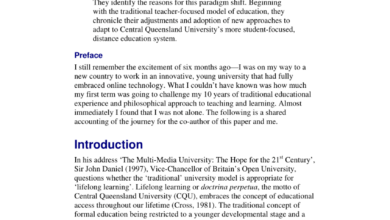Online Master’s Degree: A Guide to Earning Your Degree Online
Contents
- 1 Hello Readers,
- 2 Introduction
- 3 Benefits of Online Master’s Degrees
- 4 Drawbacks of Online Master’s Degrees
- 5 Considering an Online Master’s Degree
- 6 Applying to Online Master’s Programs
- 7 Paying for Online Master’s Programs
- 8 Conclusion
- 9 FAQs
- 9.1 1. What are the benefits of earning an online master’s degree?
- 9.2 2. What are the drawbacks of earning an online master’s degree?
- 9.3 3. What are the requirements for admission to an online master’s program?
- 9.4 4. How long does it take to complete an online master’s degree?
- 9.5 5. How much does it cost to earn an online master’s degree?
- 9.6 6. Are online master’s degrees as respected as traditional on-campus master’s degrees?
- 9.7 7. What are some tips for succeeding in an online master’s program?
Hello Readers,
In today’s rapidly evolving world, the demand for higher education has never been greater. However, the traditional path to a master’s degree – attending classes on campus – may not be feasible for many working professionals or those with family obligations.
Fortunately, the rise of online education has opened up new possibilities for individuals seeking advanced degrees. Online master’s programs offer a convenient and flexible way to earn a graduate degree without sacrificing your career or personal life.
This comprehensive guide will delve into the ins and outs of online master’s degrees, exploring their benefits, drawbacks, and key considerations. Whether you’re a seasoned professional looking to advance your career or a recent graduate seeking to specialize in a particular field, this article will provide you with the information you need to make an informed decision about pursuing an online master’s degree.
Introduction
Online master’s degrees have become increasingly popular as a way for students to earn their degrees without having to attend traditional on-campus classes. There are a number of benefits to earning an online master’s degree, including the flexibility to study at your own pace and on your own schedule, the ability to choose from a wider range of programs and schools, and the potential to save money on tuition and other expenses.
However, there are also some drawbacks to earning an online master’s degree. These include the lack of face-to-face interaction with classmates and instructors, the potential for technical difficulties, and the need for self-discipline and motivation to succeed.
Overall, online master’s degrees can be a great option for students who are looking for a flexible and affordable way to earn their degree. However, it is important to weigh the benefits and drawbacks carefully before making a decision about whether or not to pursue an online master’s degree.
Benefits of Online Master’s Degrees
There are a number of benefits to earning an online master’s degree, including:
Flexibility
Online master’s programs offer a great deal of flexibility, which is ideal for working professionals and those with family obligations. Students can typically access course materials and complete assignments at their own pace and on their own schedule. This makes it possible to earn a master’s degree while still working full-time and taking care of personal responsibilities.
Wider range of programs and schools
Online master’s programs are offered by a wide range of schools, both in the United States and abroad. This gives students the opportunity to choose from a variety of programs and schools that may not be available in their local area.
Potential to save money
Online master’s programs can be more affordable than traditional on-campus programs. This is due to the fact that online programs do not have the same overhead costs as on-campus programs. Additionally, online students may be able to save money on transportation and other expenses.
Drawbacks of Online Master’s Degrees
There are also some drawbacks to earning an online master’s degree, including:
Lack of face-to-face interaction
One of the biggest drawbacks of online master’s programs is the lack of face-to-face interaction with classmates and instructors. This can make it difficult to build relationships with classmates and instructors, and it can also make it difficult to get the support and feedback that is necessary to succeed.
Potential for technical difficulties
Another drawback of online master’s programs is the potential for technical difficulties. These difficulties can include problems with accessing course materials, completing assignments, and communicating with instructors and classmates. Technical difficulties can be frustrating and can make it difficult to keep up with the pace of the program.
Need for self-discipline and motivation
Online master’s programs require a great deal of self-discipline and motivation. Students must be able to manage their time effectively and complete assignments on time without the structure of a traditional classroom setting. Students who lack self-discipline and motivation may find it difficult to succeed in an online master’s program.
Considering an Online Master’s Degree
If you are considering pursuing an online master’s degree, there are a number of factors you should consider, including:
Your career goals
What are you hoping to achieve by earning an online master’s degree? Do you want to advance your career, change careers, or simply gain new knowledge and skills? Your career goals should help you determine the type of online master’s program that is right for you.
Your learning style
Are you a self-motivated learner who is comfortable working independently? Or do you prefer to learn in a more structured environment with face-to-face interaction? Your learning style should help you determine whether or not an online master’s program is right for you.
Your financial situation
How much can you afford to spend on tuition and other expenses? Online master’s programs can vary in cost, so it is important to research the costs of different programs before making a decision. You should also consider whether or not you will be able to continue working while earning your degree.
Applying to Online Master’s Programs
If you have decided that an online master’s degree is right for you, the next step is to start applying to programs. The application process for online master’s programs is similar to the application process for traditional on-campus programs. You will need to submit transcripts, recommendation letters, and a statement of purpose.
Some online master’s programs may also require you to take an entrance exam. The entrance exam is used to assess your academic skills and your potential for success in the program.
Paying for Online Master’s Programs
There are a number of ways to pay for an online master’s degree, including:
Scholarships
There are a number of scholarships available to students who are pursuing online master’s degrees. These scholarships can help to cover the cost of tuition and other expenses. You can find scholarships by searching online or by contacting the financial aid office at your school.
Grants
Grants are another option for paying for an online master’s degree. Grants are different from scholarships in that they do not have to be repaid. You can find grants by searching online or by contacting the financial aid office at your school.
Loans
If you are unable to obtain scholarships or grants, you may need to take out a loan to pay for your online master’s degree. There are a number of different types of loans available, so it is important to shop around to find the best loan for your needs.
Conclusion
Earning an online master’s degree can be a great way to advance your career, change careers, or simply gain new knowledge and skills. However, it is important to weigh the benefits and drawbacks carefully before making a decision about whether or not to pursue an online master’s degree.
If you are considering pursuing an online master’s degree, there are a number of factors you should consider, including your career goals, your learning style, and your financial situation. You should also research the costs of different programs and the application process before making a decision.
FAQs
Here are some frequently asked questions about online master’s degrees:
1. What are the benefits of earning an online master’s degree?
There are a number of benefits to earning an online master’s degree, including the flexibility to study at your own pace and on your own schedule, the ability to choose from a wider range of programs and schools, and the potential to save money on tuition and other expenses.
2. What are the drawbacks of earning an online master’s degree?
There are also some drawbacks to earning an online master’s degree, including the lack of face-to-face interaction with classmates and instructors, the potential for technical difficulties, and the need for self-discipline and motivation to succeed.
3. What are the requirements for admission to an online master’s program?
The requirements for admission to an online master’s program vary from school to school. However, most programs require applicants to have a bachelor’s degree from an accredited institution.
4. How long does it take to complete an online master’s degree?
The time it takes to complete an online master’s degree depends on the program and the student’s pace of study.
5. How much does it cost to earn an online master’s degree?
The cost of an online master’s degree varies from school to school. However, most programs cost between $20,000 and $60,000.
6. Are online master’s degrees as respected as traditional on-campus master’s degrees?
Yes, online master’s degrees are as respected as traditional on-campus master’s degrees. Many employers do not differentiate between online and on-campus degrees.









